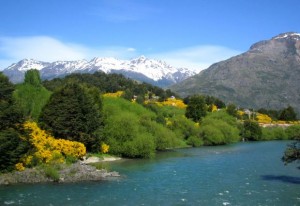Kiely McFarlane and Leila Harris are co-hosting a special session on Water Science and Policy in Canada at tat the Canadian Association of Geographers’ Annual Meeting hosted by Simon Fraser University in Vancouver, BC in June this year.
Session description:
Canada has experienced significant changes in the way its water resources are managed and governed over the last 20 years. These changes have included the development of new laws and policies; the rise of watershed and water stewardship groups; increased attention to First Nations rights and title; increased stakeholder participation in water governance; the uptake of ecological restoration and sustainable design principles; and investment in climate change mitigation. British Columbia’s new Water Sustainability Act (2014) is a particularly notable recent revision to provincial water legislation, fundamentally rewriting the relationship between governments, communities, and water bodies. New kinds of social and natural science are required to support, evaluate, and contest these policy reforms; along with changes in environmental monitoring, data collection, and use. Such changes include the types of science being produced and used, as well as the actors involved in knowledge funding, production, and use.
The purpose of this session is to interrogate current shifts in water policy in British Columbia and Canada more generally, with a focus on implications at the science-policy-politics interface. Geographers and those in allied disciplines are well positioned to contribute to these discussions. For instance, human and physical geographers can offer critical analyses of the types of science/epistemologies being used to develop and implement policies, and the role of science and ‘evidence’ in policy and decision making. Equally, questions might be asked about how policy changes are influencing demands for natural and social science, or the role that universities could play in negotiating this evolving science-policy interface.
Potential topics could include:
- Current water policy directions (changes in governance or management) in Canada
- Implications of particular legislation, policies, agreements, or court decisions for water science
- Examples of the types of scientific inquiry being used to develop or implement a policy
- Changes in monitoring and environmental data collection
- Novel applications of freshwater science for decision making
- Implications of changes in science-policy relations for knowledge politics, democracy, and access to decision making
- Implications of changes in the types of science or modes of scientific production in Canada
If you are interested in presenting a paper at this session, please send an abstract of no more than 200 words to kiely.mcfarlane@ubc.ca by February 30th 2015.
